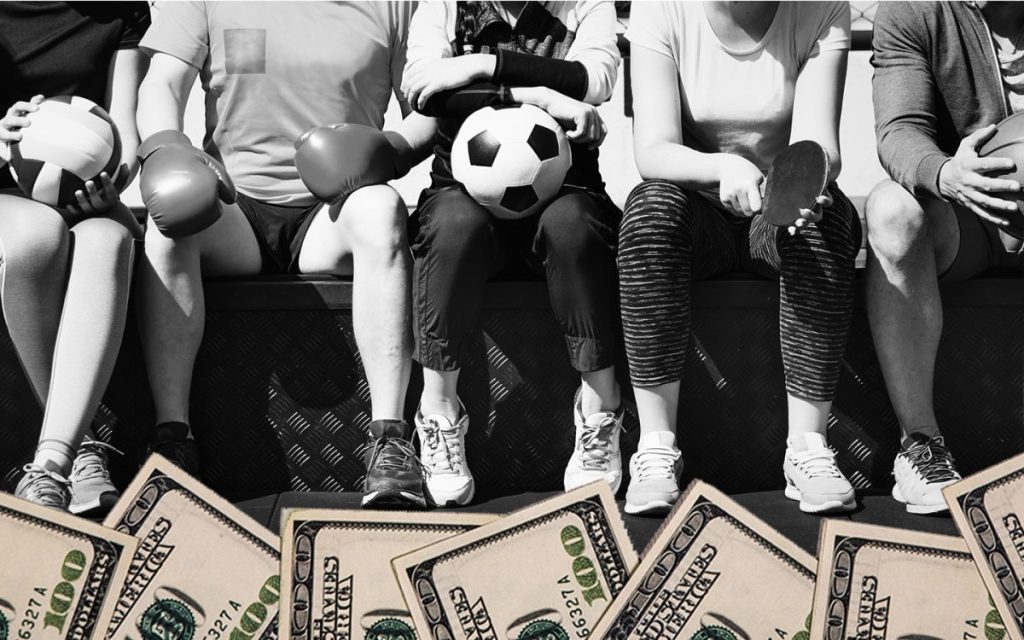The Great Reckoning: College Athletics Enters a New Era of Pay, Power, and Chaos

A seismic shift has rocked the foundation of college sports. On June 6, for the first time in history, the NCAA permitted schools to pay their athletes directly, a landmark decision that officially ended the longstanding myth of “amateurism”1. While the
House v. NCAA settlement was intended to bring clarity to a turbulent landscape, its aftermath has only plunged the world of college athletics into a state of heightened confusion and fierce debate2.
A Political Battlefield
The fight over the future of college sports has now moved from the courtroom to the halls of power in Washington, D.C.3. In July, House Republicans, with some Democratic support, introduced the
SCORE Act4. This legislation aims to codify into federal law that athletes are not employees, regulate name, image, and likeness (NIL) deals, and grant the NCAA a broad antitrust exemption5.
Proponents of the bill, like Rep. Russell Fry, R-S.C., argue it would restore order to what he calls the “Wild West” of NIL, safeguarding Olympic and women’s sports and protecting universities from a wave of litigation6. This sentiment was echoed by President Donald Trump, who issued an executive order in July to address the “mess” of college football, where players are being “traded around like playing cards”7.
However, advocates for athletes, including the executive director of the National College Players Association, Ramogi Huma, view the political maneuvers as a “coordinated attack on athletes’ rights”8. They argue that the
SCORE Act and similar actions threaten to strip athletes of the economic opportunities they’ve recently won and grant the NCAA and conferences too much power9. Senator Maria Cantwell, D-Wash., has also voiced concern that the act would consolidate control among the Power Four conferences and create funding issues for non-revenue sports10.
The Employee Debate and Collective Bargaining
At the heart of the legal and political turmoil is one central question: are student-athletes employees? The
House v. NCAA settlement did not settle this debate, leaving schools and players in a legal gray area that could lead to new challenges, including unionization and collective bargaining11. Some prominent voices in college sports, like Oklahoma State football coach Mike Gundy and Tennessee athletic director Danny White, believe the time has come to acknowledge athletes as employees12. They argue that accepting this reality could lead to a more stable, negotiated solution rather than years of ongoing litigation13.
This debate carries significant weight for Title IX, which mandates equal opportunity for women in college sports. If athletes in revenue-generating sports are classified as employees, universities might attempt to justify paying them more than athletes in non-revenue sports, potentially creating new compliance issues14.
The New Financial Reality
While the debate rages on, the financial model of college sports has already been transformed. The settlement requires schools to pay back $2.8 billion in damages to former athletes over the next decade15. Going forward, a new College Sports Commission will enforce rules under the settlement, including a cap of
$20.5 million that schools can distribute to athletes annually16. This figure represents about 22% of the average revenue across the four power conferences and is expected to rise17.
The new system also introduces strict oversight for NIL deals. Previously, these were often facilitated through third-party collectives with little to no regulation, leading to a system of veiled pay-for-play18. Now, all NIL contracts are subject to approval by the consulting firm
Deloitte, which has partnered with the College Sports Commission to ensure deals are based on “fair-market value”19. Reports indicate that under this new system, nearly 70% of previous contracts would have been denied20. This has led to concern that the new process could restrict the earning potential of athletes, a key reason why many believe the NCAA is pushing for federal intervention21.
The future of college sports is anything but settled. With dueling legislation, competing interests among schools, and a growing call for athletes to have a seat at the table, the ongoing struggle for control and economic rights will continue to define this new, messy era of college athletics.

